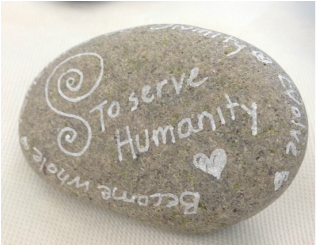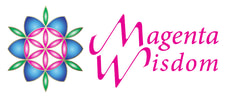 My most recent professional experiences have brought me back to think about evolving education. In my previous blog I shared a little bit of the journey that has taken me to this moment. By evolving education I mean both integrating learning into life as well as designing new learning systems. Both are necessary. The first is about supporting a culture that embraces our growth and personal development as an ongoing lifelong process. Such a culture will recognize that as human beings we are always expanding and that in our life time we go through transitions or deeper transformations that require support and acknowledgement. Indigenous societies know the importance of creating rites of passage that mark these life transitions from one stage of being into another. The second is about innovating the learning institutions (the schools and universities of the future that are needed today) to develop whole human beings capable of creating whole, peaceful cultures. I believe that learning is an integral part of life. Learning is key to the development of our human potential and to our collective cultural evolution. This has always been the case — our capacity to learn and adapt to new situations, as well as our capacity to adapt our environment to our needs, has been intricately linked to our survival. We became so successful at this adaptation game that something happened. Something got forgotten and disconnected. We started to believe that we are separate or above nature, that we can control it, that we can do whatever we want as if the laws of nature didn't apply to us. There are good news and bad news about this misperception. The good news is that we are finally beginning to acknowledge what a silly mistake it was. We are slowly but surely beginning to remember that we are one, that our lives and well being depend on the health and well being of the planet, that our selfish and disconnected ways of living and treating other living beings has created too much destruction and too much suffering. The bad news is that we are in deep trouble. The complexity and scale of our situation translates to a life or death predicament for humanity, or more accurately, an evolve or become extinct choice. What will we choose? The amount and access of information available today is both a blessing and a curse. Never before have we had the opportunity to know what is happening in every part of the world as it is happening. Never before could we learn anything we want, immediately, by simply Googling it. Never before could we connect and collaborate with people no matter where they are physically located. At the same time, our lives are so full and the amount of stimulation we receive is simply overwhelming. The mainstream media channels broadcast distorted messages fueled by greed. They control the masses by keeping us numb with endless material desires and in a permanent state of fear. You have to have initiative to tune into life- affirming messages and to find sources of hope and inspiration. Shouldn't education be about developing the full potential of each human being so that they can create a better world than the one they are inheriting from us? I say yes, absolutely. Then why are we so concerned about standardized tests, or grades, or getting our kids to a reputable college and making sure they will be “successful” at playing the current game of our consumer society? Why do we continue to invest energy and resources into an education that continues to feed the cultural myths that got us into trouble? Can we get to a different future through old ways of learning, doing and being? I don't think so. Bela Banathy distinguished evolutionary learning from maintenance learning. While maintenance learning is about acquiring knowledge from the past and maintaining the status quo, evolutionary learning is about knowledge creation and cultural innovation. Evolutionary learning is guided by questions of possibility that expand the edge of what we already know in order to create what we can only imagine. Evolutionary learning is what our world needs today. Fifteen years ago, I did my dissertation research on Evolutionary Learning Communities (ELCs). My research was a theoretical articulation of a generic pattern – a fractal, an archetype – meant to guide the design of learning systems as unique and diverse as the people who created them but with unifying principles to guide societal transformation toward a sustainable future. This research was grounded in the life experiences and real practical efforts of a group of change agents who were my learning partners and co-researchers. Their projects were like different colorful threads that I attempted to wave into a coherent tapestry. Systems design, curriculum development, teacher training, systems thinking, new sciences, alternative unschooled systems, co-housing, community building, technological innovation, organizational learning, knowledge management, leadership development, deep ecology, environmental sustainability, shamanism, cosmology and conscious evolution where some of the topics woven into the inquiry. I defined ELC as an ideal, alternative learning system designed to catalyze the purposeful creation of a sustainable and evolutionary future. ELCs are attuned to the place, the culture, and the stories and dreams of the people who create them. And yet, there are some shared values and common intentions that create coherence despite the contextual differences. A school for children in India, a socio-ecological graduate program in Mexico, an intentional community in Northern California, or a global network of change makers and social entrepreneurs may seem on the surface like radically different institutions. But if they all share a commitment to transformative learning, to supporting the discovery of the higher purpose of each person, and to creating spaces for collaborative life-affirming learning, design and action, then these organizational systems are all ELCs. Today, I'm not alone in the action inquiry of education as the healing and transformational journey to develop the possible human and the possible society, as Jean Houston would say. There are brave souls taking bold steps and innovating the education of the future today. These educational entrepreneurs are trailblazers of their own unconventional learning processes, visionaries committed to action, leaders willing to face their fears and show us the risk and vulnerability it takes to create something new. And yet, these radically new and different evolutionary learning systems are deeply familiar because they reconnect us to our humanity, give us a sense of belonging, and bring us back to a sense of meaning and purpose in our lives that feels like home. I feel honored, humbled, grateful and excited to be part of an emergent global community of individuals who are saying yes to the redesign of our educational systems. This is the work of evolutionary alchemists: willing to step into the fire to transmute the old into the new, creating organizations committed to walk their talk, innovating the regenerative business models, embodying within their organizational cultures the values and practices that they teach. These are the evolutionary learning communities ready to partner with anyone ready to embrace their learning journey to become who they are meant to become and to do the work they cannot notdo. I dedicate this blog to my friends, collaborators — pioneers in evolutionary learning — at Mycelium and The Journey Network.
0 Comments
I teach at Saybrook University, a graduate institution that was founded in the 70s to disseminate a humanistic view of psychology champion by luminaries such as Rollo May, Carl Rogers, Abraham Maslow and James Bungental. Today, our programs go beyond clinical and interdisciplinary psychology to include mind-body medicine, organizational leadership and transformation and human science. We are a distance learning institution, geographically dispersed around the globe, but the sense of community and connection that I have with colleagues and students is deep and real. At every commencement ceremony, the room fills with the overflowing sense of gratitude that graduates expressed to their faculty, fellow students, family, and friends. The stories shared are testimony of the transformative learning journey that their education entailed.
I have always seen learning as a powerful, lifelong process. Collaborative learning—especially when it is connected to issues of care and concern for learners—has the power to catalyze change. This is the kind of learning that I have experienced here at Saybrook. We call it humanistic education. For me, humanistic education is about learning for life. That is, meaningful learning that is relevant and enabling for each human being to become who they truly want and need to become. It is learning that celebrates life—learning that nourishes the human spirit in ways that make it possible to love and care for each other, for all living systems, and for the planet as a whole. Humanistic education has very little to do with transmission of established knowledge from an expert to a novice. It is not so much about “teaching others” but more about “learning with others.” Humanistic education is about partnering in learning and engaging in dialogue guided by questions that lead to deeper understanding and new possibilities. It involves critical reflection and creativity to both consider the limitations of a current situation and envision new horizons. A learner-centered approach is the hallmark of humanistic education. But there is more. For me, a truly humanistic education for the 21st century develops a new generation of leaders with fresh ideas—leaders who are able to devise systemic solutions to the complex problems that afflict our societies. When I speak of leaders, I do not refer to the small, but powerful elite group of individuals with authority who make decisions for others, either through political influence, economic advantage, or brute force. Rather, I mean everyday citizens who are leaders of their own lives; shapers of their collective destinies; conscious participants of society. These leaders are people from all walks of life—parents, teachers, community activists, business people—acting at all levels within all types of institutions. They respond to the call to participate in the most important task of our times: to innovate a future of peace and abundance in partnership with all the living and life support systems of Earth. From this perspective, leadership is not a privilege; it is a responsibility to serve the well-being of the whole. Because if we are successful, humanistic education will help us understand that we are not separate, but rather that we are all members of one planetary family. Instinctively, we know this to be true, but in this technological age of distraction, we must learn to remember. There are myriad indications that our institutions are not viable. The economic, political, educational, health, and environmental crises are manifestations of an outdated and fragmented view of the world. The first step in the task of creating a different future is to remember our interconnectedness and our humanity. In this century, humanistic education is more needed than ever. As Bertrand Russell and Albert Einstein penned in their famous Pugwash Manifesto of 1957: “Remember your humanity, and forget the rest.” |
AuthorKathia Castro Laszlo, Ph.D. ArchivesCategories
All
|

 RSS Feed
RSS Feed